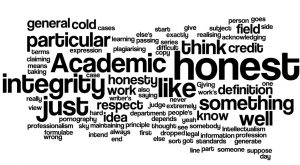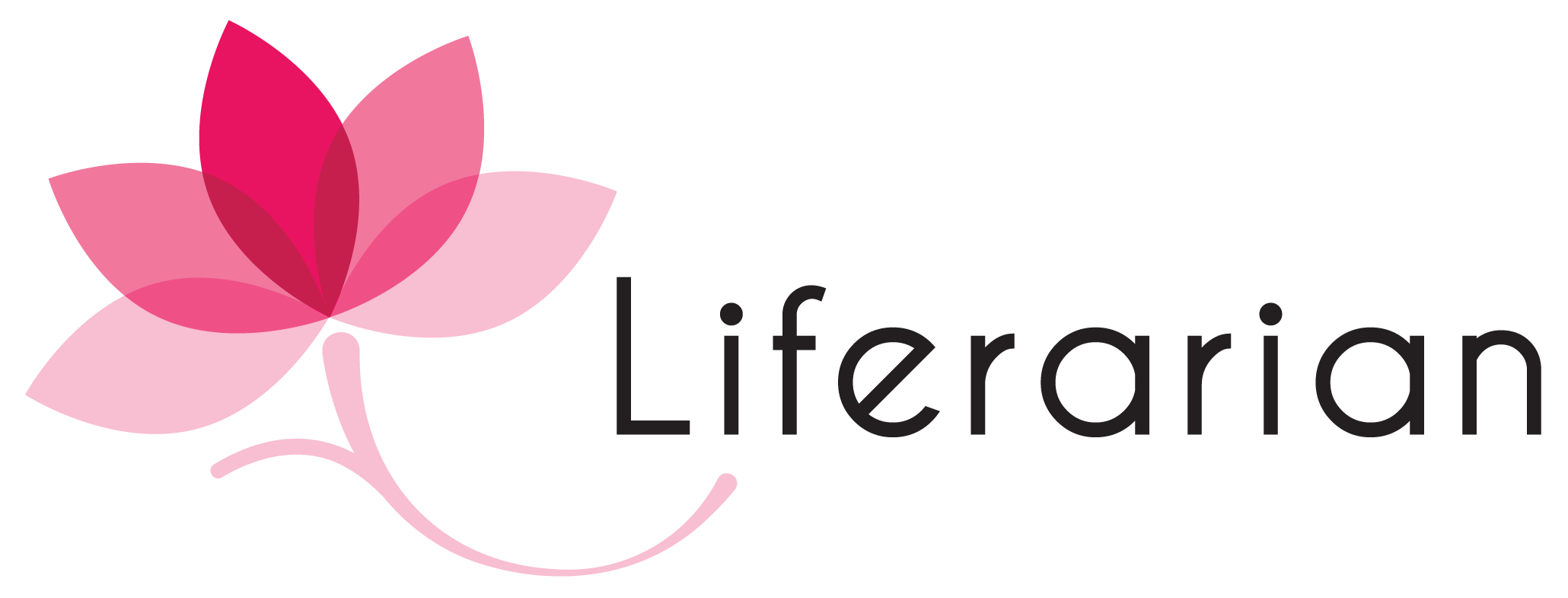Academic Integrity and the role of Librarian
Honesty is the first chapter in the Book of wisdom. Let it be our endeavour to merit the character of a just nation.
— Thomas Jefferson
 Technology Driven minds and curriculums-
Technology Driven minds and curriculums-
A few years back, when I joined an IB school, my perception of the school library was more on reading books and referring notes in a silence zone. However, the pattern of teaching and learning is drastically opposite, and more technology-driven in IB schools can be seen. As the advancement of technology has brought more dimensions to it, the enormous information is now just a click away. Moreover, dependency and reasons for being academically dishonest are more prevalent now.
As soon as we think of something, before the thought takes shape, our fingers turn to Google. The internet and technology available have taken over us so much that it is difficult to distinguish which is an original thought and which borrowed. It calls for the need to foster values and ethics of authentic learning.
Librarians are the custodians of imparting the culture of Academic Integrity-
With this, the need to impart the Academic integrity culture is more important for the school librarians. First, I referred to the documents on Academic honesty to understand the core elements of this policy in IB schools: plagiarism, infringement, collusion, and malpractice.
According to the Cambridge dictionary, Academic Integrity is the quality of being honest and having strong moral principles that you refuse to change.
According to the IB, Academic Honesty’- “Academic honesty must be seen as a set of values and skills that promote personal integrity and good practice in teaching, learning, and assessment.” (IBO. MYP: From Principles into Practice 77)
As rightly defined above- it is not enough to have values to be honest in what you do unless one is equipped with the skills to be accurate in academic practices. With the information flooded from all over, students today face a dilemma. They sometimes fail to understand the thin line of perceptions between what constitutes severe academic misconduct and what is fair and acceptable.
Blame it on the advent of information and technology, the desire to get admission into the esteemed university, or peer/parent pressure; cheating continues to be a part of the learning community. There is also a common notion that to work smart is to take shortcuts, i.e., to copy-paste as it is safe unless you get caught.
The majority of students do not intend to plagiarize but lack knowledge and skills that prevent them from abiding by academic Integrity. Therefore the emphasis should be on developing the skills rather than achieving the final grades that they can retain beyond years of schooling.
Best practices for instilling academic Integrity
Policy
Well-laid school policy on academic Integrity has been the primary tool for years to combat academic misconduct. We, librarians, are in the core member team for reviewing the Academic Integrity policy for the school. Being a custodian of promoting the policy to the school community ensures to make clear the expectations of being academically honest and face the necessary consequences of misconduct.
Environment of trust
Policies coupled with an atmosphere of trust work wonders; otherwise, it remains a set of rules to be mended and broken. We need to ensure that rather than using policies to penalize students, focus on how we can build an atmosphere of trust where students are truthful, fearless, and take accountability for their learning.
The new document ‘Academic Integrity’ published by IB rightly emphasizes this:
“Academic integrity goes beyond a definition and a well-structured school policy; it should also be part of an “ethical culture” of any educational institution, be that a primary school or a university. It is an obligation which must be embraced and fostered by the entire school community, so students continue their future life, whether in higher education or the workplace, in strict adherence to this principle.” (IBO. “Academic Integrity.” 3)
I have been very fortunate and take pride to say our school promotes an open atmosphere where students can approach teachers, principals, or heads of the school without any barrier and share their thoughts, ideas, or problems. Through morning prayers, inspirational talks, and meditation sessions we imbibe the following three principles of honesty:
- Be truthful
- Have faith in yourself
- Have faith in the supreme
The school’s approach is to build a culture where students act ethically not only because of the discipline but the desire to act ethically within. Individual counseling and support is given to students to help them believe in themselves.
Training for skill building
All other strategies of fostering values of Academic Integrity are futile if the students are not well-equipped with the skills to be academically honest. The abundance of information and technology available is a fact, but the students explicitly taught to use it responsibly.
As the Librarian of the school, I partner with teachers to develop the information literacy skills required to comply with academic Integrity that supports them in their culminating projects- the PYP exhibition, Personal project and Extended Essay such as:
- Paraphrasing, summarising and quoting
- Note-taking and note-making
- Familiarising copyright, intellectual property right and fair use
- Referencing and citation as per the conventions adopted in the school
- Developing Research skills through primary and secondary sources, annotated bibliography
- Evaluating the sources for credibility and authenticity
- Exposure to a wide range of academic and leisure reading
The library is a foundation for building these skills.
The foundation of developing these skills stems from introducing and reinforcing Academic honesty to students across the programs from EYP, PYP, MYP, and DP, which is directly related to IB learner profile and ATL skills. The activities begin within the library with as simple as students trying to escape the book issue procedure, deliberately misplacing the book position on the shelf or following due dates of returning books.
For the younger students, storytelling, read aloud, quizzes, building integrity-related vocabulary are some of the methods of introducing AI. For the middle school and DP examples of academic misconduct are discussed to bring out the essence of AI that enables them to discover various forms of academic misconduct and its future repercussions
Although during the academic integrity sessions, the students’ echo is that they already know what it is.
We apply various engaging activities that include-
- An interactive quiz on Kahoot
- Creating a word cloud on Wordle
- Making posters in Canva to raise awareness about Academic Integrity.
Role model
For all new staff members, an induction program is introduced to them with norms of referencing, and citation and professional Development sessions are conducted for re-enforcement. As educators, we can demonstrate Integrity by citing our sources correctly, practicing time management, and being a role model for young learners.
Small steps in practicing academic Integrity in the years of schooling can have a far impact on the students in building caring and respectable citizens of tomorrow.
Bibliography
Barberena, Adriana. “How to Promote Academic Integrity in Remote Learning | International Center for Academic Integrity.” ICAI, www.academicintegrity.org/blog/instructional/how-to-promote-academic-integrity-in-remote-learning/. Accessed 23 July 2020.
IBO. “Academic Honesty in the IB Educational Context.” Aug. 2014. https://www.ibo.org/globalassets/digital-toolkit/brochures/academic-honesty-ib-en.pdf. Accessed 3 July 2020
IBO. “Academic Integrity.” International Baccalaureate, Oct. 2019. https://www.ibo.org/contentassets/76d2b6d4731f44ff800d0d06d371a892/academic-integrity-policy-english.pdf. Accessed 23 July 2020
IBO. “Diploma Programme: Academic Honesty.” Updated Jul. 2011. Accessed 3 July 2020
IBO. Effective Citing and Referencing. International Baccalaureate. https://www.ibo.org/contentassets/76d2b6d4731f44ff800d0d06d371a892/effective-citing-and-referencing-en.pdf. Accessed 3 July 2020
IBO. MYP: From Principles into Practice. Sept. 2017, p. 77, resources.ibo.org/data/m_0_mypxx_guu_1405_4_e.pdf. Accessed 14 July 2020.
Other Essential reading sources
- Academic honesty in the IB position paper by Jude Caroll
- Programme standards and practices
- Rules for IB World Schools: Primary Years Programme, Rules for IB World Schools: Middle Years Programme, Rules for IB World Schools: Diploma Programmeand Rules for IB World Schools: Career-related Programme
- General regulations: Primary Years Programme, General regulations: Middle Years Programme, General regulations: Diploma Programmeand General regulations: Career-related Programme
- Middle Years Programme Assessment procedures, Diploma Programme Assessment proceduresand Career-related Programme Assessment procedures (updated annually)
- Middle Years Programme (MYP), Diploma Programme (DP) and Career-related Programme (CP) subject guides*
- The conduct of IB Middle Years Programme on-screen examinations
- The conduct of IB Diploma Programme examinations
By Kamini Yashwante

